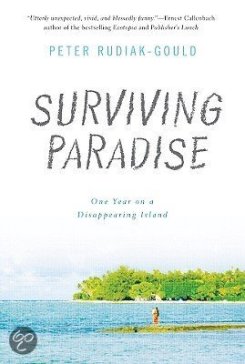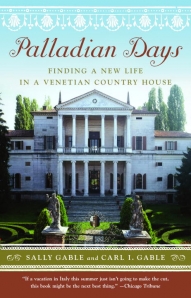This review contains affiliate links, which earn me a small commission when you click and purchase, at no extra cost to you. Thank you for supporting my small business and allowing me to continue providing you a reliable resource for clean book ratings.
Peter Rudiak-Gould had high expectations for the year he would spend as a volunteer teacher on the minuscule island of Ujae, one of the many tiny islets that comprise the small Republic of the Marshall Islands. He wanted to go somewhere exotic, natural, untouched by the outside world, where “gentle, prosaic islanders … would give me an all-access pass to a cultural amusement park… (and) entertain me with colorful festivals and noble traditions.”
Even though Ujae had no electricity or running water and the bulk of the food available was fish, breadfruit, coconuts and pandanus, the island was certainly not virgin territory: boys and girls alike sported T-shirts that proclaimed “I ♥ being a princess,” the kids flashed gang signs for photographs, and all were addicted to the small portions of modern technology they owned.
Rudiak-Gould also expected to “emerge wiser, calmer, kinder.” What he did experience were long hours of boredom, frustration with the language, and bafflement at a culture that welcomed him enthusiastically but also managed to exclude him. He was eager to teach young minds but had no idea how to make them listen during the hours they sat in his classroom. Discipline was practically impossible; either he threatened students with consequences that meant nothing to them, resulting in no change in their behavior, or he asked parents for help, which meant that he would tacitly agree to their methods, which were screaming and hitting.
Surviving Paradise is a straightforward tale of one man’s experiences as the lone white man on a small island thousands of miles away from his home in America. Readers get to follow along as he tries to figure out how to get along in this new society and if it’s even possible to assimilate as an outsider. He tells about his frustrations, confusions and small triumphs and just describes day-to-day life as a Marshallese. It’s at turns educational and interesting and often humorous. His gaffes and the seeming absurdity of conflicting cultures blending somehow are entertaining.
Rudiak-Gould doesn’t try too hard to make sense of it all or to call Westerners to repentance; rather, he most often tells how he expected to learn some obvious lessons and was instead left wondering what he should be learning. As a liberal man from California who wants to find ways to improve the world without imposing his own culture on others, he discovers that despite trying to rise above his Western upbringing, he is still unabashedly and contentedly Western. He does discuss briefly the ecological concerns facing Ujae and the Marshalls, but he finds it isn’t quite as simple as crying “global warning” and telling Westerners to be better about recycling; so while he doesn’t preach, he does gently educate readers that the Marshallese may find themselves without homes in the future. All of these are interesting points to consider for readers living in the United States, far away from these places that, if this book didn’t exist, would seem too distant to be relevant or personal.
Overall, Surviving Paradise is an interesting book that provides a window into a far-off land and culture, while entertaining and inspiring both occasional giggles and more often food for thought.
Rated: Moderate, for one use of strong language, some other mild and moderate language, and a few vulgar references to sex and body parts.
Click here to purchase your copy of Surviving Paradise on Amazon.




